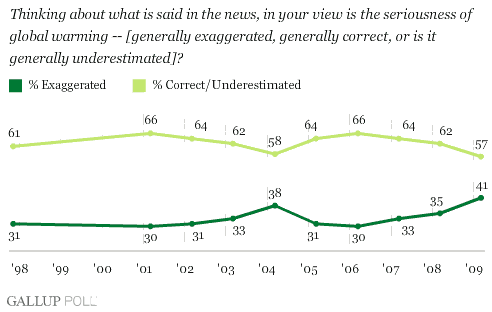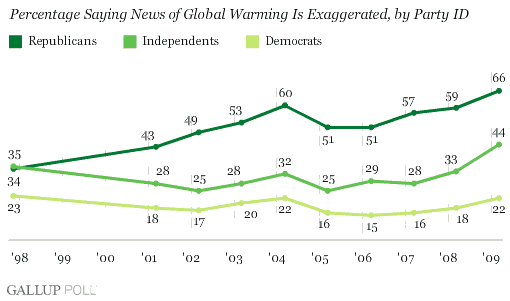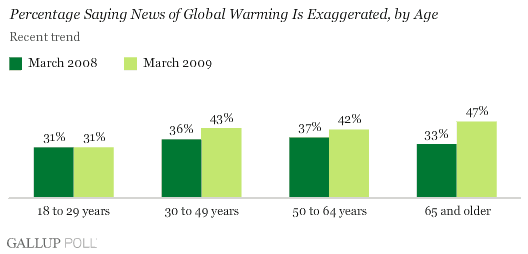Sully: Happy States
Catherine Rampell summarizes:
The index attempts to “measure what it is that people believe constitutes a good life, who is feeling good about life, and who is in need of a helping hand.” In general, the states where people reported feeling better about life were located primarily in the West, and lower well-being states were clustered in the Midwest and the South...
Rich on $410 billion spending bill March 11: President Obama signed a $410 billion dollar spending bill leftover from the Bush Administration. If he didn't sign it, Congress would have literally been shut down at midnight. Rachel Maddow is joined by New York Times columnist Frank Rich.
Visit msnbc.com for Breaking News, World News, and News about the Economy
Think Progress: Rep. Frank extracts media mea culpa from Andrea Mitchell: ‘We plead guilty’ to ‘gotcha’ journalism.
On MSNBC this afternoon, Andrea Mitchell asked Rep. Barney Frank (D-MA) about Tom Friedman’s New York Times column today, in which he called it “insane” that “dozens of key appointments at the Treasury Department” are held up over minor infractions. Frank replied that “it’s a problem,” adding, however, that it was “a little self-serving” for the media to “blame that entirely on the Senate.” After Frank said that the media’s “over-focus” on minor infractions “is the problem here in part,” Mitchell conceded, saying “you’re right”:
Think Progress: ‘Fair And Balanced’ Fox News Wages Assault On Unions, Distorts Facts Of Employee Free Choice ActFRANK: No, I mean the media is the problem here in part. It is the over-focus on the part of people in the media to relatively minor infractions that cause this. I guarantee you that my colleagues would not on their own be doing this. So, yeah, I do think we are in a culture now where a lack of perfection exacts too strong a toll. But that’s the politicians reacting to the media.
MITCHELL: I take your point. Mr. Frank, Mr. Chairman, you’re right. And we plead guilty because this culture right now of gotcha has gotten completely out of control.
Yesterday, the Employee Free Choice Act (EFCA) — a bill that makes it easier for workers to form unions and prevent employer harassment and intimidation — was introduced in both the House and Senate. The bill allows workers to unionize if a majority agrees, rather than forcing them to go through the months-long and often fruitless process of negotiating with powerful employers for the right to organize.
With a multi-million dollar campaign to defeat the bill under way, Fox News has enthusiastically taken up the anti-union, Big Business talking points. Even putting aside the network’s frequent right-wing guests, Fox News hosts describe EFCA using anti-union rhetoric while constantly distorting the truth about the legislation: ... ... ...
...
Fred Kaplan: (h/t sully)
Frank Schaeffer: Open Letter to the Republican Traitors (From a Former Republican)In the coming months, if he can be taken at his word, President Obama will open talks with Syria and invite Iran to join a regional conference on Afghanistan and Pakistan. China will have to play some part in this conference, too, as it will with forums on North Korea. And if any progress is made toward Israeli-Palestinian peace talks, he will have to pressure the Israelis to make compromises on policy toward Gaza and the settlements.
All of these things will be difficult enough. They will be harder still if domestic critics can scream that Obama's policy is being manipulated by "that Saudi agent" or "that Chinese apologist" who's running the intelligence community.
Dear Republican Leaders: The Republican Party has become the party dedicated to sabotaging the American future.
...You Republicans are the arsonists who burned down our national home. You combined the failed ideologies of the Religious Right, so-called free market deregulation and the Neoconservative love of war to light a fire that has consumed America. Now you have the nerve to criticize the "architect" America just hired -- President Obama -- to rebuild from the ashes. You do nothing constructive, just try to hinder the one person willing and able to fix the mess you created.
I used to be one of you. As recently as 2000 I worked to get Senator McCain elected in that year's primary. ....
In the mid 1980s I left the Religious Right, after I realized just how very anti-American they are, (the theme I explore in my book Crazy For God). They wanted America to fail in order to prove they were right about America's "moral decline." Soon after McCain lost in 2000 I re-registered as an independent in disgust with W. Bush. But I still respected many Republicans. Not today.
How can anyone who loves our country support the Republicans now? Barry Goldwater, William F. Buckley and Ronald Reagan defined the modern conservatism that used to be what the Republican Party I belonged to was about. Today no actual conservative can be a Republican. Reagan would despise today's wholly negative Republican Party. And can you picture the gentlemanly and always polite Ronald Reagan, endorsing a radio hate-jock slob who crudely mocked a man with Parkinson's and who now says he wants an American president to fail?!
With people like Limbaugh as the loudmouth image of the Republican Party -- you need no enemies. But something far more serious has happened than an image problem: the Republican Party has become the party of obstruction at just the time when all Americans should be pulling together for the good of our country. Instead, Republicans are today's fifth column sabotaging American renewal.
President Obama has been in office barely 45 days and the Republican Party has the nerve to blame him for the economic and military cataclysm he inherited. I say economic and military cataclysm because without the needless war in Iraq you all backed we would not be in the economic mess we're in today. If that money had been spent here at home on renovating our infrastructure, taking us toward a green economy, putting our health-care system in order we'd be a very different situation.
...
For the party that created our crises of misbegotten war, mismanaged economy, the lack of regulation of our banking industry, handing our country to rich crooks... to obstruct the one person who is trying to repair the damage is obscene.
...
After Obama was elected, you Republican leaders had a unique last chance to send a patriotic message of unity to the world -- and to all Americans. You could have backed our president's economic recovery plan. Since we all know that half of our problem is one of lost confidence and perception, nothing would have done more to calm the markets and project resolve and confidence than if you had been big enough to take Obama's offered hand and had work with him -- even if you disagreed ideologically. You had the chance to put our country first. You utterly failed to rise to the occasion.
The worsening economic situation is your fault and your fault alone. The Republicans created this mess through 8 years of backing the worst president in our history and now, because you put partisan ideology ahead of the good of our country, you have blown your last chance to redeem yourselves. You deserve the banishment to the political wilderness that awaits all traitors.
Daily Kos' Meteor Blades on Global Warming
As a rather imperfect counterpoint to the three-day conference on climate change finishing up today in Copenhagen, the Gallup organization released its annual environmental survey, Wednesday. As reported by Lydia Saad, Gallup found that:
...the global warming message may have lost some footing with Americans over the past year. Gallup has documented declines in public concern about the environment at times when other issues, such as a major economic downturn or a national crisis like 9/11, absorbed Americans' attention. To some extent that may be true today, given the troubling state of the U.S. economy. However, the solitary drop in concern this year about global warming, among the eight specific environmental issues Gallup tested, suggests that something unique may be happening with the issue. ... Although a majority of Americans believe the seriousness of global warming is either correctly portrayed in the news or underestimated, a record-high 41% now say it is exaggerated. This represents the highest level of public skepticism about mainstream reporting on global warming seen in more than a decade of Gallup polling on the subject.
As recently as 2006, significantly more Americans thought the news underestimated the seriousness of global warming than said it exaggerated it, 38% vs. 30%. Now, according to Gallup's 2009 Environment survey, more Americans say the problem is exaggerated rather than underestimated, 41% vs. 28%. ... Notably, all of the past year's uptick in cynicism about the seriousness of global warming coverage occurred among Americans 30 and older. The views of 18- to 29-year-olds, the age group generally most concerned about global warming and most likely to say the problem is underestimated, didn't change. ...
Altogether, 68% of U.S. adults believe the effects of global warming will be manifest at some point in their lifetimes, indicating the public largely believes the problem is real. However, only 38% of Americans, similar to the 40% found in 2008, believe it will pose "a serious threat" to themselves or their own way of life.
Yglesias: Department of WTF
One of the best ideas to come out of the New Deal was the FDIC. You guarantee that the government will ensure that bank depositors get their money back even if a bank fails. Consequently, there are no “runs” on banks. Consequently, banks rarely fail. But still they sometimes fail, and to be credible the FDIC needs to have some money it can give to depositors. Since the deposit insurance is good for the banks, you do this by levying insurance premiums on banks. Works great. One of the least controversial government programs there is. And yet:
The federal agency that insures bank deposits, which is asking for emergency powers to borrow up to $500 billion to take over failed banks, is facing a potential major shortfall in part because it collected no insurance premiums from most banks from 1996 to 2006. The Federal Deposit Insurance Corporation, which insures deposits up to $250,000, tried for years to get congressional authority to collect the premiums in case of a looming crisis. But Congress believed that the fund was so well-capitalized - and that bank failures were so infrequent - that there was no need to collect the premiums for a decade, according to banking officials and analysts.
I don’t think we should beat around the bush here. “Congress” didn’t “believe” anything—Congress believed that they could legislate a giveaway to the banks and nobody would notice or care. ... ...
- commenter Andy Says: March 11th, 2009 at 5:24 pm
- John Cole
From the comments:
I think there’s a misunderstanding here. The premiums were reduced in 1996 because the fund had reached its statutory reserve level. That wasn’t so much the problem. Everybody was happy. (Except the thrifts, which had by no means reached theirs—but that’s another story).The problem really came about five years later (2000/2001) when the FDIC realized that many changes in banking (such as increading levels of consolidation), plus inflation, had made that reserve level too low, and there was no way for them to change it. Also, newer banks, which themselves had never paid any premiums, were unfairly coasting on the previous premiums made by older banks. And many other complications with the system.
That’s why in 2001 they lobbied congress for statutory authority to have flexible control over the reserve levels, to match the actual state of the banks. Congress did not make banks start paying premiums again until 2006. So, as Bair, puts it, “five years were wasted.”
Drum on Political Interference
The New York Times reports that banks are getting tired of Uncle Sam constantly looking over their shoulders:Drum Just a Little Off the TopFinancial institutions that are getting government bailout funds have been told to put off evictions and modify mortgages for distressed homeowners. They must let shareholders vote on executive pay packages. They must slash dividends, cancel employee training and morale-building exercises, and withdraw job offers to foreign citizens....The conditions are necessary to prevent Wall Street executives from paying lavish bonuses and buying corporate jets, some experts say, but others say the conditions go beyond protecting taxpayers and border on social engineering.
Some bankers say the conditions have become so onerous that they want to return the bailout money. The list includes small banks like the TCF Financial Corporation of Wayzata, Minn., and Iberia Bank of Lafayette, La., as well as giants like Goldman Sachs and Wells Fargo.
Obviously, everyone's first reaction is here is to break out their tiny violins so we can all play sad songs for the nation's bankers. Songs like this: If you don't want taxpayer oversight, then don't take taxpayer money after you've run your bank into the ground. Until then, suck it up.
That's pretty much my second reaction too. Still, there's a germ of an issue here. One of the arguments against bank nationalization is that ... ... ... ....
Yesterday Citigroup announced that it had been profitable in January and February and the stock market rejoiced. Citigroup shares jumped 50%. But how about their bonds, probably a better measure of what the market really thinks of Citi's chances of surviving? Answer: not so good.
U.S. bank debt has lost 7.8 percent and yields have jumped to record levels compared with benchmark rates in the past month....The concern among debt holders is reflected in Citigroup’s $789 million outstanding in 7.25 percent subordinated notes due in October 2010, which fell 7 cents today to 70 cents on the dollar and have lost 23.7 cents in the past three weeks.
... ...
HuffPost: Jim Cramer Shorting Stocks, Manipulating Markets, Saying The SEC Doesn't Understand
In light of the current economic crisis, and with the hullabaloo ignited recently by Jon Stewart over the accuracy of CNBC's reporting, we thought it might be useful to revisit this shocking 2006 interview Jim Cramer gave to TheStreet.com's Aaron Task.
In it, the host of Mad Money says he regularly manipulated the market when he ran his hedge fund. He calls it "a fun game, and it's a lucrative game." He suggests all hedge fund managers do the same. "No one else in the world would ever admit that, but I could care. I am not going to say it on TV," he quips in the video.
He also calls Wall Street Journal reporters "bozos" and says behaving illegally is okay because the SEC doesn't understand it anyway.
Here are some gems:
-On manipulating the market: "A lot of times when I was short at my hedge fund, and I was positioned short, meaning I needed it down, I would create a level of activity before hand that could drive the futures,"
-On falsely creating the impression a stock is down (what he calls "fomenting"): "You can't foment. That's a violation... But you do it anyway because the SEC doesn't understand it." He adds, "When you have six days and your company may be in doubt because you are down, I think it is really important to foment."
-On the truth: "What's important when you are in that hedge fund mode is to not be doing anything that is remotely truthful, because the truth is so against your view - it is important to create a new truth to develop a fiction," Cramer advises. "You can't take any chances."
Special thanks to our tipster Henry Chukuka! Keep those tips coming, team!
For more on Jim Cramer and shorting stocks, click this.




No comments:
Post a Comment